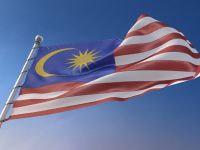Philippine President Gloria Arroyo was to sign into law Saturday a bill to combat money laundering just in time to avoid economic sanctions threatened by Western countries, officials said.
The Senate and the House of Representatives separately ratified the final version of the bill and presidential palace spokesmen said Arroyo was scheduled to sign it into law later.
"We have criminalized money laundering in support of the major global campaign against the evil empire of the narcotic syndicates and terrorists," House Speaker Jose de Venecia said.
Legislators from the House and the Senate completed a final version of the bill in marathon meetings which ended before dawn on Saturday so that their respective chambers could ratify it in special sessions.
The legislators have been racing to beat a Sunday deadline to pass the law or expose Philippine financial transactions to sanctions by members of the Organization for Economic Cooperation and Development (OECD).
An OECD body, the Financial Action Task Force (FATF), has threatened to punish Manila unless it passes a law against money laundering to rid the local banking system of its image as a haven for dirty money.
Present Philippine laws impose tight secrecy on bank deposits, making it almost impossible to uncover money laundering.
The new law creates a special anti-money laundering council that will be empowered to freeze bank accounts with suspicious deposits. It will then have 15 days to get a court order to open the accounts to scrutiny.
In general, bank accounts with less than $80,000 will remain off limits to the council.
The bill also lists 14 crimes which would be considered possible sources of dirty money including kidnapping, robbery, swindling, drug trafficking and terrorism-related acts like hijacking, arson and murder.
"This is good since it addresses the main concern of the world today, which is terrorism," Finance Secretary Jose Isidro Camacho said.
Some legislators had strongly resisted weakening the secrecy of bank accounts and had refused to allow authorities to open accounts without a court order.
Assistant minority leader Rolex Suplico, who voted against the bill, said the Philippines was pressured into passing it.
"We were made to work with a loaded gun," he complained.
Critics complained that the bill was so watered down that it would not satisfy the FATF.
But Senate President Franklin Drilon said: "The final version will meet all the basic requirements of the task force and eventually remove the Philippines from the blacklist of suspected money-laundering havens."
Arroyo implied that the draft law had flaws but stressed Friday that "what's important is to have something done by September 30" to avoid the sanctions.
The absence of an anti-money laundering bill has prevented Manila from cracking down on the hidden funds of terror groups linked to Saudi dissident Osama bin Laden, the main suspect behind the attacks that killed thousands in the United States on September 11.
Arroyo said that once the bill was passed she would hunt down the bank deposits of the Abu Sayyaf, a Philippine Muslim guerrilla group that is alleged to have links with bin Laden -- MANILA (AFP)
© 2001 Al Bawaba (www.albawaba.com)







